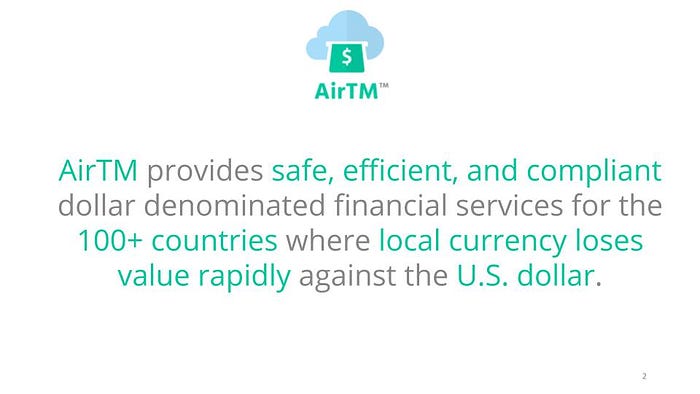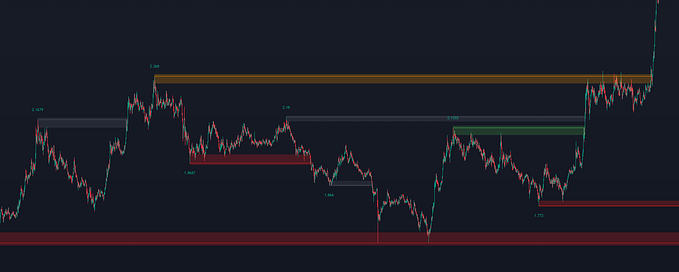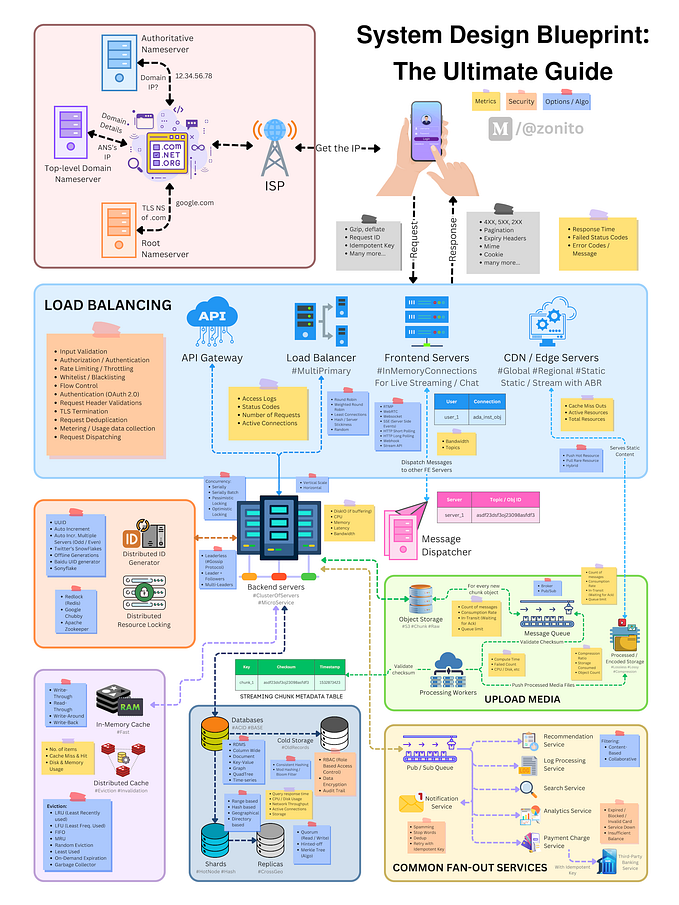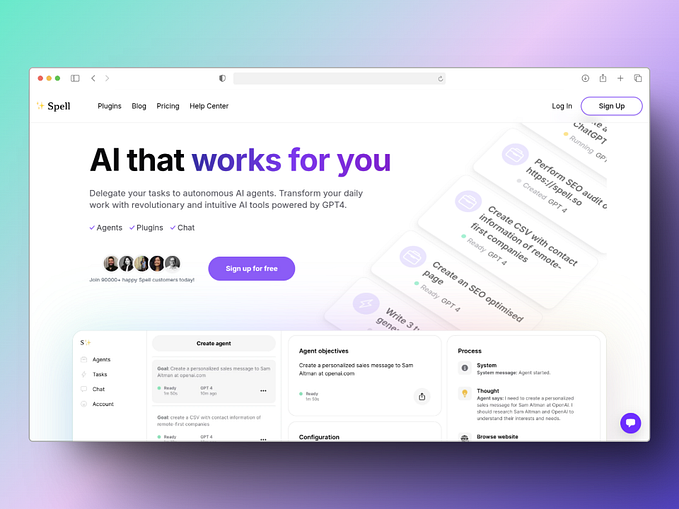Scaling Stranger-to-Stranger Services
Gist: Global scaling of P2P forex marketplaces (e.g. Airtm, Localbitcoins) are as inevitable as Airbnb and Uber, because they 1.generate billions in consumer surplus, 2. create millions of gig economy jobs, and 3. can be as safe, reliable, and tax revenue efficient as legacy licensed alternatives.

1. Comfort of Strangers
Let’s take a sec to honor the skeptics who doubted Airbnb (founded 2008) or Uber (2009) could ever scale to a material share of short-term rental or transportation markets.
Strangers servicing strangers? Coordinated by software? Said services long provided exclusively by licensed entities? For sure those license holders would lobby regulators to squash the upstarts. Not to mention that strangers are often disgusting vectors of disease, violence, and fraud. Who’s going to sleep in some stranger’s guest bedroom or hop into their car?

Let’s also pause to acknowledge all the smartypants who were sure that bitcoin (created 2008) would never be anything but cypherpunk funbux. They were also deterred from buying or building on bitcoin by a “Stranger Danger” qualm (the mysterious Satoshi and potential overhang of his massive, fair-mined stack). And they were also freaked out by the idea of a legacy power structure being challenged (a phenomenon that I hereby call “Incumbent Omnipotent.”) Bitcoin’s goes like this: surely, nation-states and their central banks would never allow their money-printing monopoly to be threatened. Bitcoin was destined to be banned, censored, or otherwise regulated to zero.

And, finally, a nod to the naysayers of Localbitcoins (founded 2012) and Airtm (2015). It wasn’t totally crazy for them to believe that those scrappy fintech startups would ever be anything more than a marginal patchwork of, respectively, anything-to-bitcoin and anything-to-dollar wildcat trading pools. Sure, Airbnb and Uber were unicorns by the time those P2P marketplaces launched, and bitcoin’s market capitalization had soared to $1BN (2012) and $3BN(2015). But surely P2P forex markets were a bridge too far?

Strangers might be coordinated safely by software to share cars, homes, and a decentralized money network, but strangers helping each other buy and sell bitcoin or digital dollars? That was without a doubt going to get someone in a boatload of trouble.
After all, wasn’t P2P forex just a tool for criminals to circumvent the restrictions and requirements of licensed exchanges? Why weren’t all those Localbitcoins or Airtm users purchasing their bitcoin on Coinbase and their dollars on Transferwise or Paypal if they weren’t up to something shady?
Best to steer clear.
2. Mother of Adoption

When Uber launched in New York City in 2011, I wasn’t surprised to hear from lots of locals who thought the app was pointless. NYC is a very walkable city and taxis got the A-to-B job done well enough for most everyone. To me (Brooklyn-born) and many New Yorkers, Uber’s stranger-to-stranger service called to mind the gypsy cab drivers furtively hustling fares in the arrivals hall of JFK and LaGuardia.
In San Francisco, however, Uber was a welcome revelation from the start, so crappy were the incumbent taxi services (unresponsive, slow, unreliable) and so steep the city’s hallmark hills.

My first Uber ride was in 2011 in SF with the very pregnant mother of my first son, returning from a party in Pac Heights to our home in the Lower Haight. The black car we summoned (Uber only offered fancy rides back then) took more than an hour to arrive, but it was still a way better experience hailing the ride with an app versus waiting for some local taxi dispatcher to pick up the phone. And it was reassuring (especially to my pregnant partner) to see the little car’s progress on the map.
That’s how bad SF taxis were — a bit of convenience and certainty resulted in rapid adoption, fierce loyalty, and sky-high Net Promoter Scores.
And so with Airbnb: for business travelers or those with flexible travel dates, hotels were ideal — they either didn’t feel the pain at check-out or they had flexibility to adjust their travel to take advantage of low-season deals. But for budget-trippers to festivals and conventions or during high-season and holidays, Airbnb was a miracle app that literally made dreams come true.

And so with bitcoin: it was difficult for most people in the developed world with their USD-or-EUR-denominated lives to grok the appeal of a currency that was extremely volatile relative to those strong home currencies and issued according to code run by millions of computers rather than by the politically-motivated whims of central bank grandees.
But for billions of people living in the 100+ countries with national currencies that lose purchasing power every day compared to dollars and euros, a predictably scarce, internet-native, decentralized store of value was a welcome innovation on the order of penicillin. Predictably scarce compared very favorably to the unpredictable (but always profligate) money-printing of their nations’ central banks. Internet-native and decentralized was a lot better than trapped in local banks, i.e. easy to seize or shut down.
Bitcoin was a mind and money virus that spread quickly among those living in places where money and banks were no longer useful or trusted, especially anyone with wealth to preserve or business to do. It also infected local hackers who understood they could build border-hopping financial services using Satoshi’s ingenious code-governed money system.

A global network of traders coordinated by Localbitcoins (a Helsinki-based startup) provided access to this new form of money, even in places where centralized bitcoin exchanges were banned (e.g. China, India, Russia, Venezuela, etc). Governments hostile to those bitcoin on/off ramps to their bank system also tended to impose currency and/or capital controls, trapping their citizens’ wealth in a local fiat gulag. Localbitcoins’ network of anything-to-bitcoin forex agents was often the easiest, fastest, cheapest, and most reliable way to route around such wealth-destroying constraints.

Localbitcoins was the direct inspiration for Airtm’s dollar marketplace and P2P agent network.
When we launched Airtm in 2015 as an application on Uphold’s API, our bare bones web app was met with a yawn by fintech investors and media. Projects targeting first-world crypto speculators were hot; “localbitcoins, but for dollars,” not so much.
In Venezuela, however, where hyperinflation was destroying an entire country’s savings and with it the economy of a resource-rich nation, Airtm found that early-stage startup holy grail: product/market fit.
In addition to the world’s worst hyperinflation caused by “El Burro” Maduro’s socialist policies and non-stop currency debasement, government-rigged exchange rates rendered the banking system useless for consumers and businesses to receive international payments, remittance, or donations. Starving families, savvy freelancers, and small business owners on the brink of insolvency were Airtm’s early adopters. They used Airtm to preserve wealth against the dizzying devaluation of the bolivar and convert money trapped in Paypal and Amazon gift cards to bolivars in their Venezuelan bank account at free market (vs. Maduro-rigged) rates.

Economic refugees from Venezuela brought Airtm to Colombia and other surrounding countries. From there, we spread quickly throughout Latin America, becoming the digital USD that connects US and LatAm banking systems, ideal for cross-border payments because it’s sendable and spendable as USD, but also accessible quickly and at low-cost (i.e. at free-market exchange rates) as local money.
3. Little Bridges to Big Money Island

To scale globally Airbnb and Uber were obligated to become forex agents for the strangers they were coordinating, taking in digital payments from guests/riders in one currency and paying hosts/drivers out in another. They could have opted to just focus on the US where they launched, leaving stranger-to-stranger service coordination of short-term rentals and transportation in other countries to local platforms. But venture capital ROI only works with internet-enabled network effects and power laws, which means global scale. And so both Airbnb and Uber cobbled together the payments functions (via set-up of local entities or acquisitions of local startups) necessary to service guests/hosts and riders/drivers all over the world (191 countries/81,000 towns & cities and 71 countries/890 cities, respectively).

If you live in San Francisco and want to stay at Airbnb in Mumbai, you will pay with USD and your host will typically receive INR, with Airbnb keeping its coordination fee in dollars. Uber drivers in Argentina receive pesos for their work, even when it’s a New Yorker riding and paying with her US-issued credit card. As with Airbnb, Uber keeps its coordination fee in dollars whenever possible, a currency the drivers and hosts would prefer as well (more on the Optimal Hustle Bundle below).
(Of course, New Yorkers back in New York also eventually fell hard for Uber too — no more waiting in taxi lines at airports. Turns out gypsy cab drivers just needed a startup to coordinate them in order to become kosher and mainstream. By solving a dire problem for some, Uber scaled to solve less dire problems for many many more.)
Every pay-in or pay-out method enabled by these P2P platforms is a bridge that makes it easy for different cohorts of strangers to cross over to Airbnb or Uber island, tech-enabled paradises where you can always catch a ride or book a room, and where you can easily earn money with your car or home. Everyone who uses Airbnb and Uber’s pay-in/out bridges makes those destinations even more attractive, both due to network effects and to the service fees they leave behind. More revenue, more improvements to the islands’ infrastructures, faster growth, higher funding valuations, i.e the virtuous VC cycle.

Localbitcoins and Airtm coordinate strangers to exchange any sort of money (gift cards, e-wallets like Paypal, banks , cash) for bitcoin or dollars, respectively. The localbitcoin traders and Airtm agents are themselves the forex bridges enabling strangers to enter and leave BTC and USD, money that is, respectively, reliably scarce (code-limited to an issuance of 21MM) and strong (relative to other national currencies). Each stranger-to-stranger forex platform keeps their coordination fees in their base currency, hived off the escrow that, along with reputation scoring and dispute mediation, minimizes fraud (i.e. de-risks the non-BTC/USD side of the exchange).
(I know the island metaphor breaks down with bitcoin, which is more of an open sea in which all other assets, including the almighty-ish dollar, float.)
Instead of using their home or car, Localbitcoins and Airtm forex agents earn money using their bitcoin wallets and other money accounts (i.e. bank, ewallet, gift card). Airtm offers over 800 payment methods that can be configured in our agent accounts; a comparable number of methods are on offer by traders on Localbitcoins.
The more agents, the more clients, the more P2P trades, the more coordination fees, the more attractive Localbitcoins and Airtm become as destinations. As more forex agents offer the same sort of bridge or trading pair, i.e. INR to BTC or ARS to USD, competition among agents results in lowers fees, faster processing, and an over-all better experience for clients.

Many of the same network effects that give Airbnb, Uber, and Localbitcoins an advantage over hotel chains, taxi fleets/rental cars, and centralized exchanges, respectively, also give Airtm a competitive advantage over e-wallets, local banks, and global remittance companies like Transferwise or Western Union. The bigger we grow, the bigger our advantage over legacy financial service providers, a “global Venmo” for digital dollars that are easily convertible to local money in developing world banks or cryptocurrency on public blockchains.
(Similar to the mainstreaming of Airbnb and Uber, people in the US who have no use for Airtm’s anything-to-dollar marketplace (because their lives were already denominated in dollars) now use Airtm to send dollars to family, friends, and freelancers in LatAm who depend on Airtm’s forex agents to access those cross-border dollar payments. By solving a painful problem for people and businesses living in harsh currency regimes, Airtm has become useful to much larger market of families and businesses in the US, Europe, and throughout Latam.)
Like Airbnb and Localbitcoins (but unlike Uber), Airtm’s network effects are abetted by the fact that many clients become agents, and then go on to recruit clients to Airtm from their social and business networks.

Once you’ve seen how safe, reliable, and easy it is to stay at an Airbnb as a guest, it’s natural to register as a host and make some extra money from visiting strangers. Likewise, once you’ve received a payment, remittance, or donation in AirUSD, and then withdrawn those funds as local money faster and cheaper than any other options, it’s a no-brainer to want to earn more dollars helping others do the same.
4. Irresistible Allure of Reliable Money

Airtm’s founding team all lived for long stretches in places with weak national money and periodic capital and currency controls, also known as harsh currency regimes. We’d seen our local money crash in value, felt the pain of our savings getting buzzcut, delved into the hodgepodge of work-arounds and hedges, felt more pain from these costly and risky alternatives.
You could, for example, buy physical dollars and keep then in your house or in a safe deposit box in a bank (according to the IMF, 80% of all hundred dollar bills circulate outside the US, up from 30% in 1980). Except that sometimes the banks confiscated the contents of safe deposit boxes and criminals frequently surveilled and robbed the clients of local dollar brokers.

I have bought or sold dollars on multiple occasions in Guatemala City, Mexico City, Buenos Aires, Havana, and Tehran. It was never easy and often scary, with both the difficulty and fear factor in direct proportion to the amounts being exchanged. Even in broad daylight on a busy street, the exchange was permeated with the risk of getting ripped off, either cheated by a bad rate or rumbled by a thug.
If you didn’t want to run the risk of holding physical dollars, you could trust a financial firm to open you a hard money (i.e.USD, EUR, or CHF) account. But those grey market shops sometimes vanished with your money. Monex in Mexico is an example of such a fraudulent scheme that purported to preserve wealth but ultimately stole it, leaving many a gringo expat retiree bereft and bewildered.
Until Airtm, there was no easy-as-email way for individuals or businesses anywhere in the world to convert their local money to USD (and vice versa) at free market rates. Thanks to Airtm’s global network of forex agents, anyone in the world with an Internet-connected device can open an Airtm account and deposit any sort of money (crypto, bank notes, e-wallet balances, gift cards), resulting in a wealth-preserving dollar balance, currently the most reliably strong state-issued money. (Airtm clients can also convert those dollars to bitcoin if they want to save in the most reliably scarce form of money.)
What changed to make Airtm’s magic money machine possible where before there were only risky in-person physical dollar brokers and unreliable financial services?
Bitcoin.
Localbitcoins’ 24/7 global P2P anything-to-bitcoin marketplace made it easy for Airtm’s anything-to-dollar agents to cycle minor currencies received servicing client deposits (e.g.Venezuelan bolivares, Argentine pesos, Indian rupees) to bitcoin. A robust ecosystem of compliant bitcoin-to-dollar exchanges in the U.S. (e.g. Coinbase, Kraken, Uphold) enabled Airtm to convert bitcoin deposited by those agents to USD, thereby enabling Airtm agents to accept more client deposits.
This minor currency-to-bitcoin-to-AirUSD flow was critical in the early days of Airtm adoption in Venezuela, where wealth preservation fund flows (i.e., bolivar-to-AirUSD) far exceeded freeing trapped money flows (i.e., Paypal-to-AirUSD-to bolivares).
Today, with Airtm scaling rapidly throughout LatAm as a way to receive dollar payments, remittance and donations on-boarded from U.S. banks via ACH or wire transfers, bitcoin is less critical for Airtm adoption in harsh currency regimes. More withdrawal requests from freelancers getting paid via Airtm, as well as from AirUSD remittance and donation recipients (i.e. AirUSD -to-minor currencies) mean that our forex agents can balance servicing Airtm client deposits and withdrawals, resulting in a reduced reliance on bitcoin as a bridge back to USD in their Airtm account.

Five years after launching, Airtm is the fastest, cheapest, and most reliable way to to receive dollar payments in Latin America and access them as as local money. When the destination country has currency controls like India or Venezuela, Airtm clients receive up to twenty times more local money than with dollar transfers via remittance companies or withdrawals from popular e-wallets such as Paypal and Skrill.

The allure of reliable money (and related financial services) is irresistible in the same way that indignation over being robbed is unavoidable.
Every human life is finite, our potential working hours easily calculable, our labor and effort precious and scarce. To accept payment for our hard work in money that loses purchasing power is to be cheated at an existential level. To be forced to hold unreliable money or required to exchange hard money payments for squishy local currency at government-rigged exchange rates is an egregious violation of individual rights, somewhere between larceny and slavery. Your labor is stolen. Your wealth is confiscated. Your life force is drained by a broken money system foisted on you and those you love by incompetent bureaucrats.
Unlike the more flexible and affordable short-term rentals enabled by Airbnb or faster, cheaper transportation powered by Uber, the right to preserve and enjoy the fruits of one’s labor is fundamental and essential to all other human rights.
5. Kissing the Ring

P2P bitcoin traders felt betrayed in 2019 when Localbitcoins imposed KYC requirements and banned listings for cash trades on what had been for seven years a pseudonymous and cash-friendly platform. Faced with new Finnish laws regulating virtual currency operators, Jeremias Kangas (Localbitcoins Finnish founder) had three choices: comply, shut down, or relocate. The new regulations were required of all EU member states and so Finland didn’t have much of a choice either.

Finnish regulators didn’t prohibit the stranger-to-stranger forex services coordinated by Localbitcoins (i.e. you can still exchange Euros in your Finnish bank account for bitcoin on Localbitcoins). Nor did regulators require all Localbitcoin traders in Finland to register and become licensed as financial service providers. Having proven that strangers could safely be coordinated to buy and sell bitcoin, regulators accommodated the new P2P paradigm instead of prohibiting it. Finland’s Financial Supervisory Authority simply applied the same KYC/AML requirements to Localbitcoins as they did to centralized bitcoin exchanges.

Airbnb and Uber have been wrangling with regulators since they launched and they wrangle to this day in cities around the world, a global struggle between stranger-to-stranger coordinating software platforms and a pre-internet system of legacy licensed providers.
Each platform wrangles with different local regulators, but it’s the same city-by-city knife-fighting, and it’s the same story played out almost everywhere: tech upstart accommodation by local governments in exchange for platform restrictions, fees, and taxation. It’s the story of software platforms taking big bites out of short-term rentals and transportation, and then being forced by regulators to regurgitate a portion.
In San Francisco, my partner and I signed up as Airbnb hosts in 2012. We’d rent our house to fund beach trips with our infant son, and we were very grateful for Airbnb’s short-term rental marketplace and the clean and considerate paying guests it sent our way. After our second son arrived in 2014, we didn’t have the energy to get the house ready for guests, and soon we’d negged enough inquiries that Airbnb’s algorithm toggled our listing to inactive. But for a year or so Airbnb opened up an easy extra income opportunity that we loved.

Over the next few years, we watched the apartment building across from our house off Duboce Park slowly, and then quickly, transform into a high-season hotel. Every week or so, wheelie-bagged tourists arrived and departed in airport rides orchestrated by Uber and Lyft, a cacophony of door slamming and excited foreign language chattering at all hours of the day and night.
We didn’t feel strongly enough to complain, but lots of our neighbors did. All over the city there was grousing about Airbnb causing rents to rise and changing once quiet neighborhoods into hurly-burly visitor hubs. The SF hotel industry made sure to amplify anti-Airbnb sentiment until it rang in the ears of municipal bureaucrats. In 2015 an SF ordinance imposed restrictions on Airbnb hosts that significantly reduced the tourist traffic in our hood.

Like Airbnb, Uber was challenged by regulators in every market it entered (Uber shortened its name from Ubercab soon after launching in an attempt to dodge the reach and ire of SF taxi regulators). And in most cities, years of legal wrangling, protests, and lobbying, resulted in a regulatory and taxation regime that permitted Uber’s continued operation and growth. The freedom that Uber gave to drivers to earn money from their cars was curtailed, but riders still benefited from more and cheaper transportation alternatives to SF’s abysmal taxi services.

Outside of Finland, Localbitcoins is not registered with any country’s regulatory authority. No wrangling with local regulators, no need for accommodation, restrictions, taxation. The legal argument to justify this approach for the anything-to-bitcoin exchanges that Localbitcoins coordinates has three pillars:
- P2P value transfers via the online rails of any local banking system or e-wallet are explicitly permitted, indeed it’s why those digital currency ledgers and payment systems exist;
- The BTC transfer leg of the exchange occurs in the cloud on a public blockchain, and is therefore, like email or other internet content, outside the regulatory authority of any nation state.
- Any BTC escrow services provided by Localbitcoins occur in Finland and are compliant with Finnish law as a (since 2019) registered financial service provider.
Unlike Airbnb hosts or Uber drivers who work under the aegis of those platforms’ regulatory wrangling, Localbitcoins shifts the legal risk to traders using the platform to buy and sell bitcoin.
Are P2P money transfers in service of BTC exchange legal in your country? Do you need to pay taxes on your income from such transactions? Those are questions for each Localbitcoins trader to consider and decide.
Localbitcoin’s approach to legal compliance is logical, low-cost, and effective. Any national government hoping to disconnect their country’s electronic banking system from Localbitcoin’s network of bitcoin traders would need to turn off their banks’ digital currency capabilities, or impair their use and utility significantly in the attempt. In either case the result would be to incite growth in the market for local cash-to-bitcoin exchange.

Airtm started our compliance journey in 2015 where Localbitcoins ended in 2019, i.e. fully compliant with the regulations of our U.S. home jurisdiction. As a dollar-denominated service, we knew we needed robust connections to U.S. banks and other U.S.-based financial services. So we decided to incorporate Airtm in Delaware and register as a Money Service Business with the U.S. Treasury’s Financial Crimes Enforcement Network (FinCEN). Compliance with the Bank Secrecy Act and other U.S. laws and regulations were baked-into Airtm’s product from wire-frames forward. This has enabled us to connect to U.S. banks and payment networks for easy on/offboarding of dollars to Airtm accounts and for spending of Airtm balances via virtual and physical debit cards.
Similar to Localbitcoin’s legal posture, Airtm’s lawyers are of the view that none of our operations outside the U.S. require Airtm to pursue local licensing and that the P2P transfers between Airtm clients and Airtm agents are explicitly permitted by local banks. In every market where our agent network reaches a material threshold of transaction volume, we engage local counsel to confirm the correctness of our interpretation of local laws.
Airtm’s legal stance differs from Localbitcoins in two important ways:
- In addition to our home country compliance, we have opted to become regulated as an e-wallet under Mexico’s new fintech law, a strategic decision driven by the enormous volume of US<->Mexico cross-border payments, i.e. being the best digital dollar channel for MXN<>USD will expand Airtm’s competitive moat.
- Airtm’s compliance model has been explicitly approved by the Office of Foreign Asset Control via special licenses under which the democratically elected President of Venezuela (Juan Guaido’s government in exile) has been authorized to distribute $18MM in funds seized from the illegitimate regime of Nicolas Maduro via Airtm to health workers on the front lines fighting COVID in Venezuela. (Read more about this historic use of fintech in furtherance of foreign policy here, here, here, and here.)

Airtm’s agent network has also been battle-tested in ways that Localbitcions traders have not.
After experiencing explosive growth in Venezuela in 2018 and becoming widely recognized as the most reliable source of free market bolivar-to-dollar exchange rates, Airtm and its bolivar-to-dollar agent network was targeted by the Maduro government, along with cryptocurrency exchanges and other financial services. Access to Airtm’s site was blocked on the DNS level, while Operation Paper Hands (Manos de Papel) was announced on state-controlled media.
Many of the targets of the operation were successfully closed down. But Airtm continued to operate with very limited disruptions. VPNs routed around the DNS block, and unlike the centralized operations of cryptocurrency exchanges, our agent network proved resistant to state censorship. Indeed, Maduro’s targeting of Airtm had the opposite of its intended effect by providing us free publicity (aka the Streisand Effect).

Earlier this year, in response to the distribution of the funds to Venezuelan health workers under the special OFAC license, Maduro’s government again conducted a public operation to block Airtm, intimidate our clients, and disrupt our agent network. We were prepared and the impact was even less than in 2018.
It’s likely that a more competent state security apparatus would have had greater success disrupting Airtm’s operations. But it’s also likely that, similar to bitcoin, the decentralized nature of Airtm’s P2P network makes it almost impossible (certainly impracticable) to censor completely.
This is because AirUSD transfers between Airtm accounts (the USD-leg of the anything-to-dollar exchange) occurs in the cloud, and is, like email, beyond the reach of local regulations.The local currency leg of P2P deposits and withdrawals facilitated by Airtm agents depends on local banks, but is much more difficult to detect than Airbnb guests in short-term rentals or Uber-coordinated pickups/dropoffs at local airports.
The local activity of Airtm agents (local money transfers using local banks) is impossible to distinguish from any other transfers using those same banks. In order to censor Airtm’s P2P agent network completely, local authorities would need to shut down their national banking system.

Far from fighting Airtm, there are many reasons why Maduro and other failed currency leaders should welcome the many little local bridges to dollars that Airtm’s agent network enables:
- USD inflows: government-rigged exchange rates make local banks useless for inbound payments, remittance, and donations. Airtm’s P2P dollar marketplace enables those capital inflows.
- USD Tax Revenue: It would be trivial for Aitm to levy a small tax on our Venezuela-based agent network and remit those dollars to the Venezuelan treasury (but for the OFAC sanctions on Maduro and his government, of course).
- Turn-key Dollarization: to quote the inimitable Steve Hanke (Airtm board alum, and eminence gris of hyperinflation, currency boards, and the rescue of failed currencies all over the globe) on Argentina’s latest currency crisis :
Instead of limiting the liberty of Argentines to use their preferred currency, namely, the greenback, Argentina should mothball the BCRA and the pathetic peso and put them in a museum. It’s time for Argentina to officially dollarize. This would be an easy task to accomplish.
With Airtm’s globally-connected dollar wallet, official dollarization would be a snap, with the added benefit of more efficient tax collection from Airtm’s network of centrally coordinated agents, than from the legacy grey market of OTC cuevas and street dollar arbolitos.

6. Hustle Bundle
For the first 18 months or so after launching Airtm in 2015, I was the most prolific agent in our anything-to-dollar P2P network, with thousands of completed transactions and a 4.8 star rating. Part of this effort was founder dog-fooding of product to make sure our app worked and to learn from users, the indispensable first-hand bug-bashing of each new build we pushed to production and iteration based on feedback.
But a big part of it was also because I loved helping Airtm clients send their money where it needed to go. I felt good knowing my work was in the service of freedom. Airtm clients have always been so grateful to be able to save in a reliable IOU (USD) or convert money stuck somewhere into funds they can use to buy the things they need. There was a real joy in confirming that a transaction had been completed, a dopamine hit of the sort that results from a Facebook like or a Twitter follow.

Thousands of Airtm agents enjoy that same satisfaction every day and also make an attractive income from the money bridge tolls they charge. And unlike driving for Uber, it’s something they can do sporadically throughout the day while still holding another job or attending to their family.
As mentioned above, many Airtm agents are also Localbitcoins traders, a group that overlaps with tech freelancers in the developing world, a group that was among the first to hear about and understand the bitcoin network’s predictably scarce, internet native, and decentralized money.
There is every reason to expect that Airbnb hosts and Uber drivers all over the world will also become Airtm agents, jump-starting organic growth of our P2P anything-to-dollar network wherever they drive or live as they offer their services to guests, riders, and their fellow hosts and drivers.

Call it the Hustle Bundle or Gig App Stack. You are a smart, driven, and ambitious hustler who happens to have been born in a country with a sluggish economy, weak currency, and incompetent government. Thanks to the internet, you can learn valuable skills online and monetize those skills on US-based freelancer platforms that increasingly pay-out using Airtm. Becoming an Airtm agent means you can process P2P deposits whenever you need to convert your AirUSD to local money, and you can recruit your fellow freelancers as Airtm clients.
Even if you lack the smarts or diligence to learn valuable skills online, you can still drive for Uber or become an Airbnb host. This typically means you are receiving local money payments from those platforms for providing services to riders and guests who are often paying those platforms with dollars (i.e. travelers you pick up at airports or tourists visiting your city from abroad).
Instead of holding local money that loses value against the dollars, you can easily exchange it for dollars using Airtm. Even better, you can become an Airtm agent and extend the benefits of saving in dollars to your fellow Uber drivers. Or you can offer your incoming Airbnb guests (and other guests arriving to your city) local money in cash at the best forex rates in exchange for their AirUSD, saving them the risk and hassle of sketchy street-level exchange.

Thanks to Airtm’s robust connections to the US banking system enabling fast, cheap, and easy onboarding to Airtm accounts, the synergies of Airtm with Airbnb and Uber are increasingly accessible and likely to be tapped by entrepreneurial hustlers all over the world.

In 2021, as the world emerges from the heavy pall cast by the Coronavirus, I look forward to traveling with my sons to some of my favorite places in Latin America: Buenos Aires, Cartagena (read an article I wrote about this beauty spot here), and San Miguel de Allende, as well as visiting my Airtm colleagues in Mexico City and my old Peace Corps station in rural Guatemala.
On every trip, I plan on recruiting my Airbnb hosts and Uber drivers to become Airtm clients and agents.
Stay tuned for updates!










